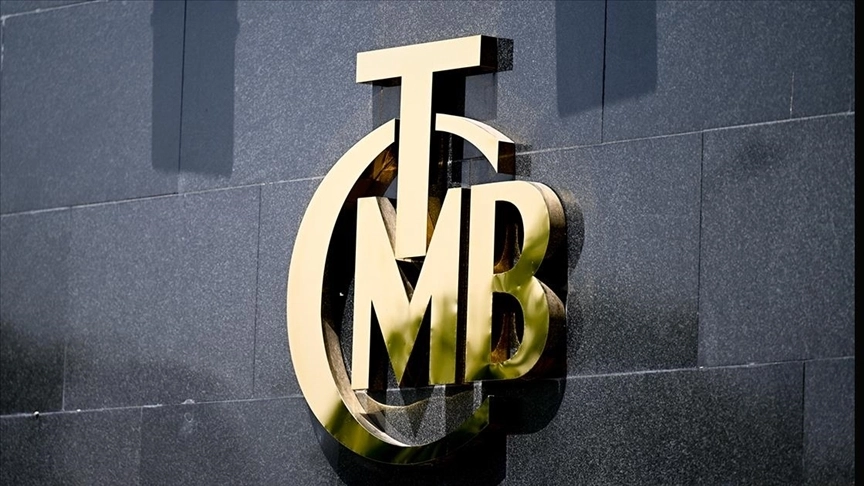Turkey's Central Bank Slashes Interest Rates: What It Means for the Economy
What happens when a central bank makes a dramatic interest rate cut? Why would policymakers reduce borrowing costs amid global economic uncertainty? How does a 300 basis point reduction to 43% affect businesses, consumers, and investors? Turkey's latest monetary policy shift has sparked intense debate—let's break down the implications.
The Historic Rate Cut: Breaking Down the Decision
On [insert date], Turkey's Central Bank shocked markets by reducing its key policy rate from 46% to 43%, marking one of the most aggressive easing moves in emerging markets this year. This 300 basis point cut follows a complex economic landscape where inflation remains stubbornly high yet shows tentative signs of deceleration.
The bank cited "improving inflation trends" and "alignment with disinflation projections" as justification. However, critics argue this risks reigniting price pressures. For context, Turkey's inflation peaked near 85% in 2022 before declining to around 50% recently—still among the highest globally.
Practical example: A business owner with ₺1 million in loans would see annual interest payments drop by ₺30,000 overnight—a significant cash flow relief, though still costly compared to pre-crisis levels.

Inflation vs. Growth: The Delicate Balancing Act
Central banks typically raise rates to combat inflation and cut them to stimulate growth. Turkey's unconventional approach—cutting despite elevated inflation—reflects its prioritization of economic expansion over price stability under its new economic team.
The government argues that high borrowing costs were strangling credit-dependent sectors like construction and manufacturing. With GDP growth slowing to 3.8% in Q1 2024 (down from 5.6% in 2023), policymakers appear willing to tolerate higher inflation for longer to avoid recession.
Real-world impact: Homebuyers may benefit from slightly cheaper mortgages, but savers will suffer as deposit rates decline faster than inflation, effectively eroding purchasing power.
Sectoral Winners and Losers
Beneficiaries
- Exporters: A potentially weaker lira boosts competitiveness
- Debt-heavy firms: Lower servicing costs for corporate loans
- Construction: Cheaper financing for projects
Those at Risk
- Pensioners: Fixed incomes lose value against inflation
- Banks: Narrower interest margins may hurt profits
- Importers: Currency depreciation raises costs
The tourism sector presents an interesting case—while a weaker lira makes Turkey cheaper for visitors, rising domestic prices could increase operational costs for hotels and restaurants.
Global Context and Investor Sentiment
Turkey's move contrasts sharply with most central banks maintaining restrictive policies. The Federal Reserve projects just one 25bps cut in 2024, while the ECB began cautious easing in June. This divergence risks capital outflows from Turkey as yield-seeking investors shift funds elsewhere.
The lira has already lost 40% against the dollar since 2023, and further depreciation could:
- Increase dollar-denominated debt burdens
- Accelerate imported inflation
- Trigger central bank intervention using scarce reserves
Market reaction: The BIST 100 index initially rose 2% on rate cut news, but bond yields spiked as investors demanded higher premiums for inflation risk.
Long-Term Economic Implications
This decision tests whether Turkey can achieve the elusive "soft landing"—reducing inflation without causing recession. Success depends on several factors:
- Sustained moderation in consumer price increases
- Productivity gains offsetting labor costs
- Stable energy prices (a major import)
- Continued foreign direct investment inflows
If inflation reaccelerates, the central bank may be forced into abrupt policy reversals—a scenario that damaged credibility during previous easing cycles. Alternatively, maintaining high rates for too long could push unemployment above its current 9.2%.
Historical parallel: Brazil's 2021-2023 rate hike cycle (from 2% to 13.75%) successfully tamed inflation but contributed to economic stagnation—a cautionary tale for over-tightening.

What Comes Next? Policy Outlook and Predictions
Analysts expect additional measured cuts in 2024, potentially bringing rates to 35-38% by year-end if inflation continues declining. However, risks are asymmetric—upside inflation surprises would force pauses or even hikes.
Key indicators to watch:
- Monthly CPI readings (next release: [date])
- Lira exchange rate against basket currencies
- Manufacturing PMI surveys
- Foreign reserve levels
The central bank's next meeting on [date] will be critical for signaling whether this marks the start of an aggressive easing cycle or a one-time adjustment.






